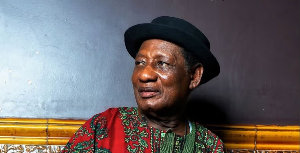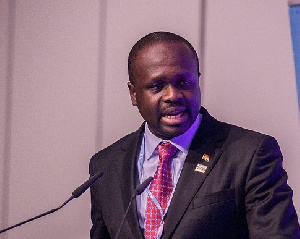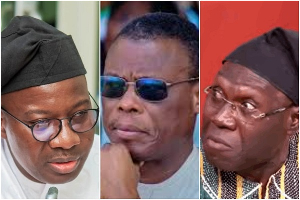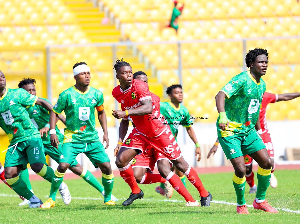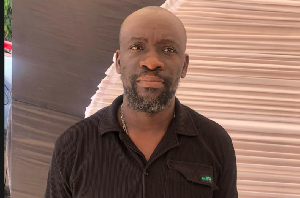Introduction
I knew Honourable Emmanuel Kyeremateng Agyarko, the deceased Member of Parliament for Ayawaso West Wuogon (AWW) Constituency in the Greater Accra Region. Honourable was well-mannered, believed in inclusive politics, and was both pleasant and peaceful. I wish him a peaceful rest. He would obviously frown upon the cacophony, the avoidable violence and mayhem which have docked at his backyard and characterised his beloved constituency after his demise. So deafening has the worrying wrongs at Ayawaso West Wuogon been that it has attracted widespread condemnation from both local and international actors. However, no serious arrest has been made to demonstrate seriousness.
As per Article 112 of the Constitution as amended in 1996, within 60 days after his unexpected exit from parliament, a by-election was to be held. But was this done within the time limit? The Supreme Court is yet to judge the pending case. A simple exercise of selecting a replacement MP led to vote buying and subterfuge which involved splicing of tapes of the NDC’s candidate to frame him as a man who is insensitive to the plight of women when in actual fact he was only referring to, “a harmless” culture from the Volta region. To me, this was like ‘deja vu’ because in the run-up to the 2016 elections, the NPP played a similar and wicked trick when I made an emphatic call for voters to vote for the NDC even in the strongholds of the NPP – they simply cut the tape to suit and serve their ends. The NPP chicanery has continued unabated.
The Violence in Ayawaso West Wuogon
I received the first news of violence in the morning of the day of voting in AWW while I was on Metro Television as a panellist. Flipping through social media, I became worried but didn’t want to break the news because I thought this could not be Ghana, our Ghana. Fake news? I quizzed! Eventually, the unbelievable scenes were confirmed. Several people had been cruelly attacked by men who were subsequently identified by the public as paid by taxpayers.
The Member of Parliament for Ningo-Prampram, Honourable Sam Nartey George; a footballer who is currently battling with possible above or below knee amputation of his leg; Mr Edem Agbana, a Deputy National Youth Organiser of the NDC; and many other innocent Ghanaians who have very little to do with politics became the targets of a state-orchestrated brutal assault on citizens in the name of partisan ‘vigilantism’.
The Catholic has Standard condemned and decried the newest low in partisan ‘vigilantism’ by describing it as, “the most unfortunate because it involved masked State Security personnel in a manner that is beyond description.” Indeed, considering the mechanism of the violence – mask wearing, gun-toting men in official police vehicles who rendered police officers hopeless on the day – the Catholic Standard is apt in its description.
As the injured nurse their wounds – including the footballer whose leg has been mauled by a shattering gunshot injury and does not know where his next meal will come from – religious leaders, the UNDP, Former President John Dramani Mahama, Mr Kofi Totobi Quakyi, a former Minister for National Security, other security experts among others have spoken in round condemnation of this record-setting-lowest-standard election in Ghana, since 1992. But conspicuously missing is the voice of former President Kufour.
Following these condemnations, the Inter-Party Coalition for National Sovereignty has also manifested their anger publicly on the streets of Accra in a long walk with several thousands of Ghanaians. In the midst of this turmoil and insecurity, President Akufo-Addo described same as, “isolated” and jetted off to three countries.
AWW PRESIDENTIAL COMMISSION AND (MIS)USE OF EVIDENCE
In the absence of President Akufo-Addo, Vice President Mahamudu Bawumia, has established a Presidential Commission of Inquiry not only to delve into the issues but also to invetsigate any matter which it considers incidental or reasonably related to the causes of the events and the associated violence and injuries.
There has been a preponderance of credible evidence on social media. Also, traditional media has been responsive by releasing their professional video footage to corroborate and complement social media’s expose. Therefore, the natural questions are: Do we need a commission of inquiry? And how come till date no arrest of the gun-toting men in brown khaki has been made?
Our recent history is replete with such acts of hooliganism. ASP Nanka Bruce was heavily assaulted under the full glare of CCTV cameras at the Flagstaff House by the ‘unstoppable’ Invisible Forces. The state is yet to deal with this simple matter which occurred at the seat of government. Inspired by the unchecked impunity of the Invisible Forces, the Delta Forces attacked a sitting female judge who was delivering justice to the Regional Security Coordinator who had been attacked by the same group in Kumasi. They only received a slap on the wrist.
Indeed, many a time in dealing with evidence, governments have sought to use commissions and committees to delay and derail appropriate curative and timely interventions.
Buse, May and Walt (2012, p.174) agree with this position and suggest governments are of the view that, “no decision can be made on a contentious issue without further research and analysis, and then appoint a commission of enquiry taking several years to do the necessary work. The effect of this action is to take the issue off the policy agenda…”
Furthermore, Weiss (1979, p.173) explains the use of evidence as the, strategy of using works of commissions, “as ammunition to support predetermined positions or to delay or obstruct politically uncomfortable decisions.”
In the same vein, if the objective of the government is to delay and obstruct swift justice, then the anchor of this commission will not hold because it doesn’t matter how long it takes, Ghanaians will continue to keep this issue on the front burner. We must not allow this to die. Lest we kiss our enviable democracy goodbye, because the issue bothers on the safety of journalists, security officers, electoral officers, voters, bystanders and all others who may be associated with future elections.
Notwithstanding the compelling views of these experienced researchers, I am minded to give the commission a conditional chance albeit reluctantly. My reluctance is because I sincerely believe that to deal specifically with the criminality at AWW, a commission of inquiry will add very little to the compendium of available evidence.
In my quest to adopt cautious optimism, I have also questioned the selection and appointment of the members of the commission. I do not, at all, question their competence. They are all lawyers. My inquiry is about complementarity. This problem is about by-elections. So, I think in this case, the services of an experienced member or former member of the Electoral Commission in the person of Dr Kwadwo Afari Gyan would have been needed instead of compounding three legal brains on the Commission.
I would have opted for Professor Mensa-Bonsu, not just to advance gender inclusivity but also because of her appreciation of criminal justice and peace building, and the former IGP based on his unique experience with policing. I would then have added somebody with practical knowledge of elections. Be that as it may, the Emile Short Commission may want to tap into the wisdom of others with practical knowledge in election matters as they work within the next few weeks.
Way Forward
Considering the enormity of the task ahead and the ramifications of inaction, which are not limited to general insecurity which includes armed robberies and murders/killings, I pray the overwhelming interest of Ghanaians guides the work of the commissioners as they begin their task. I also pray they ensure transparency by permitting live coverage of proceedings throughout their sittings. In addition, I pray their conscience and ethical standards are stimulated in a manner that will make them work without fear or favour, with the speed of light and with accuracy so that when the sun sets we may favourably answer the question, “AWW Presidential Commission will the anchor hold?”
Dr. Edward Kofi Omane Boamah Former Minister for Communications
Opinions of Tuesday, 12 February 2019
Columnist: Dr. Edward Kofi Omane Boamah
Presidential commission of inquiry – Will the anchor hold?
Entertainment
